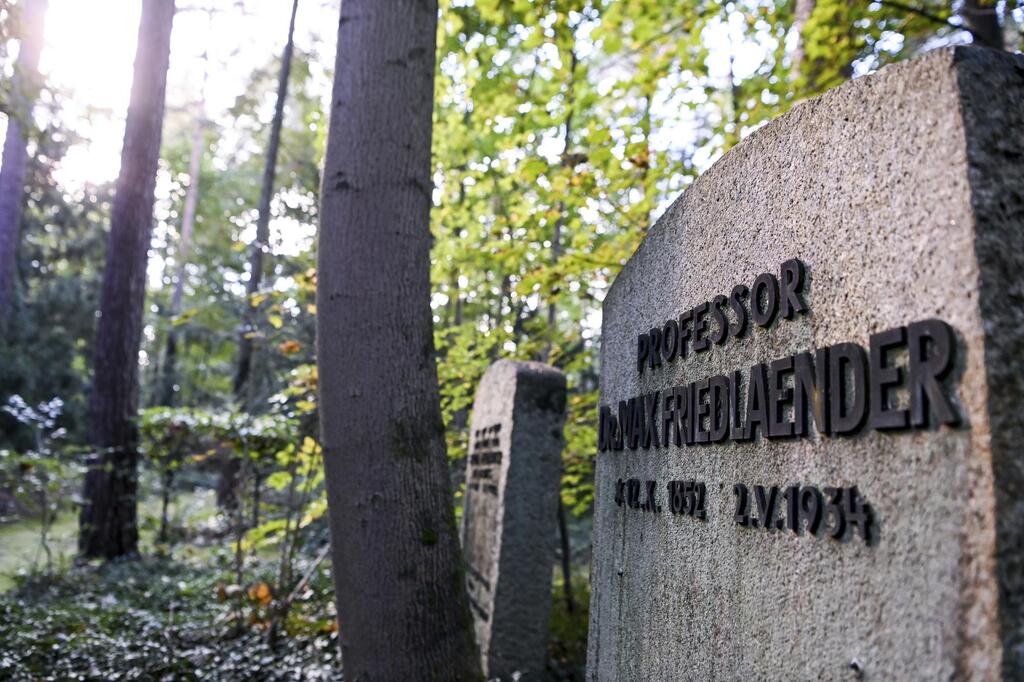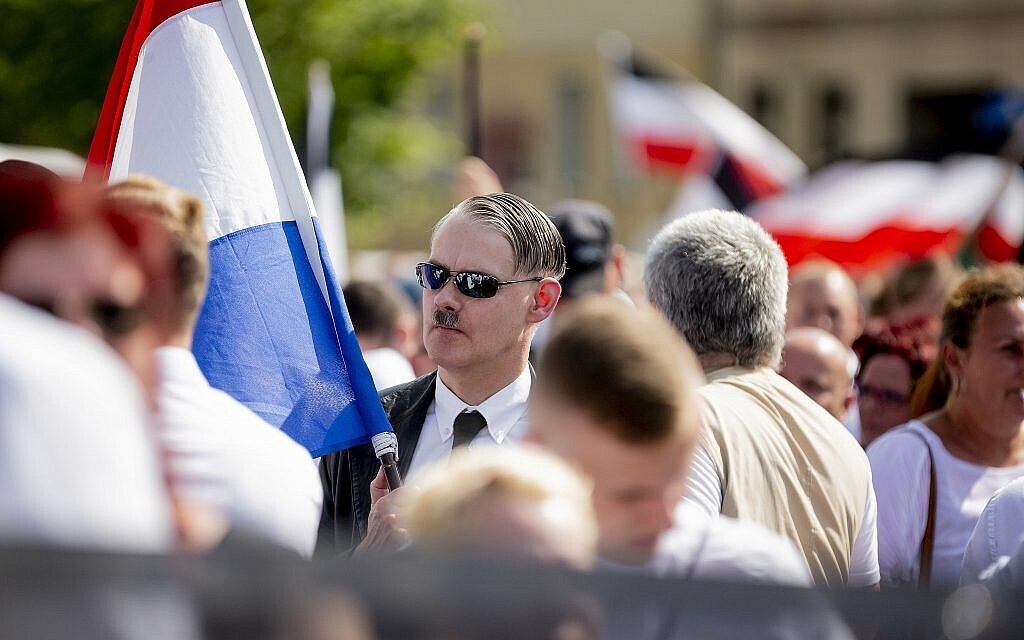The burial of a known neo-Nazi's ashes in the former grave of a Jewish musical scholar has sparked outrage in Germany, and prompted Berlin's anti-Semitism official to file a criminal complaint.
The remains of the neo-Nazi were buried at the grave of Max Friedlaender in Stahnsdorf, just outside Berlin, with several figures from the extreme-right scene in attendance at the funeral on Friday.
Samuel Salzborn, anti-Semitism official for Berlin, said late Tuesday that he had filed a criminal complaint because "the intention here is obvious -- the right-wing extremists deliberately chose a Jewish grave to disturb the peace of the dead by burying a Holocaust denier there."
He added that "it must now be quickly examined how quickly the Holocaust denier can be reburied in order to no longer disturb the dignified memory of Max Friedlaender".
The Protestant Church managing the graveyard voiced dismay at the incident.
In a statement, it said it had accepted the request for burial at the empty grave because "everyone has a right for a final resting place".
"Nevertheless, the choice of the former grave of Max Friedlaender is a mistake. We are looking into this mistake now," the church said in a statement.
At the funeral, a black cloth was laid over Friedlaender's tombstone while wreathes and ribbons bearing the Nazi-era iron cross symbol were laid on the grave for the neo-Nazi Henry Hafenmayer.
Friedlaender died in 1934 -- when Adolf Hitler was already in power -- and was buried in the graveyard as his religion was given as 'Protestant' in the burial registration slip
His grave was cleared upon expiration in 1980 and opened up for new burials, under common practice for plots after a certain amount of time has passed.
Friedlaender's gravestone however remains standing as the entire cemetery is protected under monument conservative rules.
Prominent Holocaust denier Horst Mahler, who has been convicted for incitement, was among dozens at the funeral.
Police deployed at the funeral were able to arrest a fugitive from the far-right scene there, German media reported.
Several war graves stand at the cemetery at Stahnsdorf, and these sites are known in far-right circles, the Protestant church administrating the graveyard admitted.
It added that it has worked closely with police to hinder several neo-Nazi marches there in recent years.
First published: 18:00, 10.13.21



